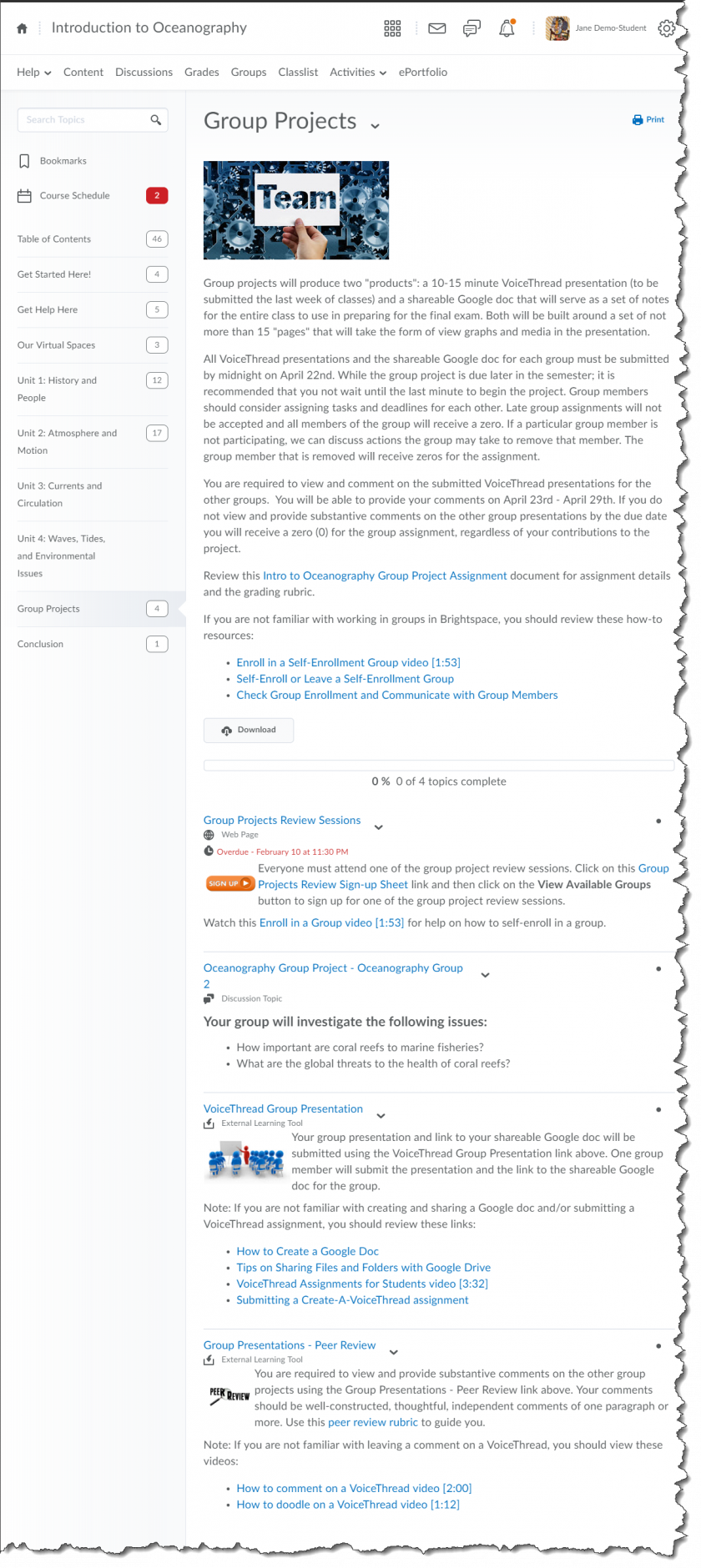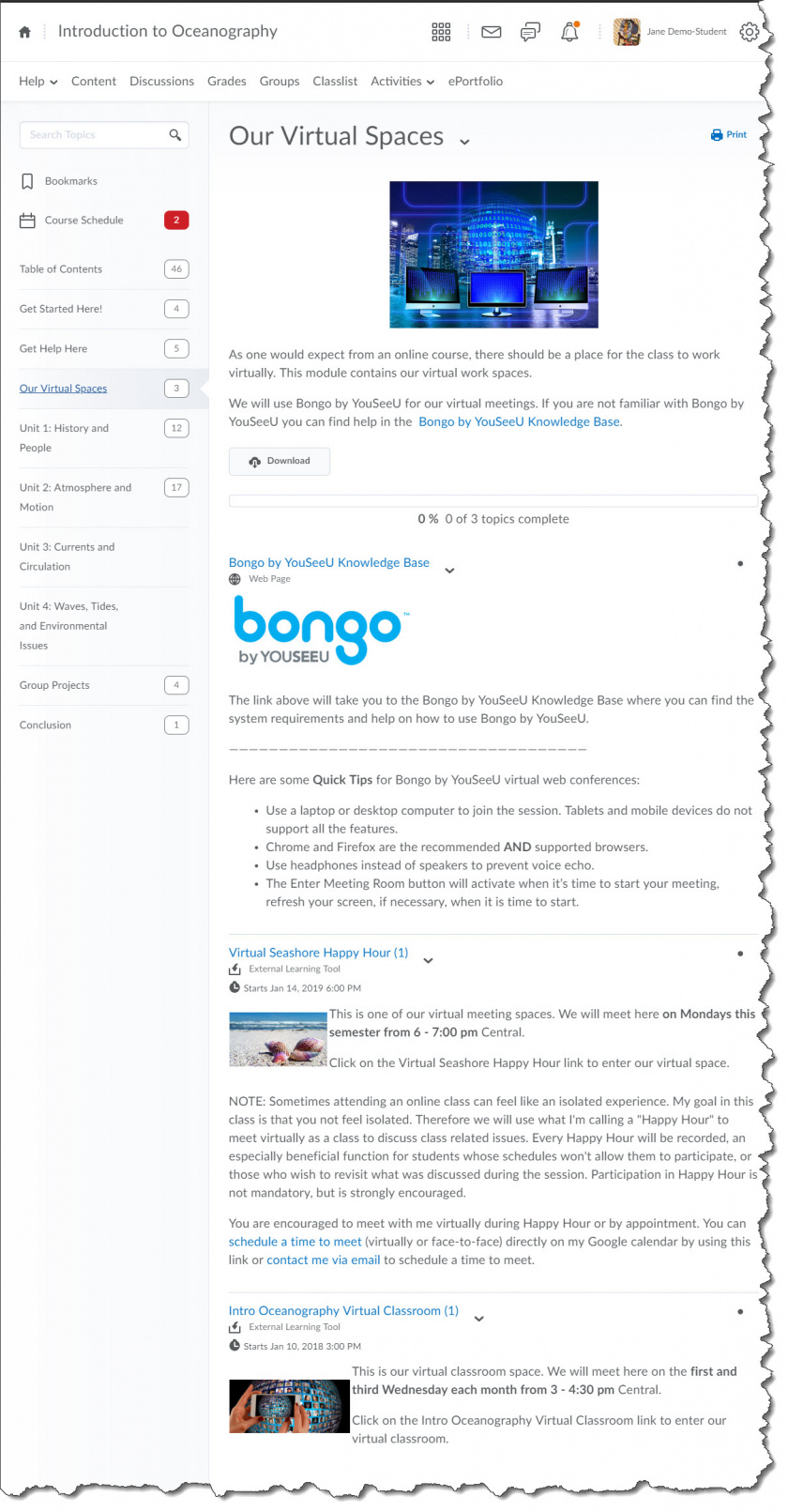QM 5 - Course Examples: Difference between revisions
| Line 29: | Line 29: | ||
===Example 5=== | ===Example 5=== | ||
Students are required to complete a group project in this Introduction to Oceanography online course. The group project requires students to work together to identify specific issues and make [https://cat.xula.edu/food/brightspace-faq/voicethread-faq/ VoiceThread] presentations to the class. VoiceThread allows the students to view and comment on the other group projects asynchronously. The [https://cat.xula.edu/food/brightspace-tip-86-working-with-groups/ Brightspace Groups Tool] is used to create the groups for the group projects. All the information and activities related to the project | Students are required to complete a group project in this Introduction to Oceanography online course. The group project requires students to work together to identify specific issues and make [https://cat.xula.edu/food/brightspace-faq/voicethread-faq/ VoiceThread] presentations to the class. VoiceThread allows the students to view and comment on the other group projects asynchronously. The [https://cat.xula.edu/food/brightspace-tip-86-working-with-groups/ Brightspace Groups Tool] is used to create the groups for the group projects. All the information and activities related to the project and how-to links for the using the tools are in a Group Projects module. | ||
Revision as of 13:28, 7 May 2019
Course Activities and Learner Interaction
Example 1
This Introduction to Public Health online course uses discussion forums as a course activity and for student interactions.
Example 2
The EVERYTHING OK SO FAR? topic in this sample Elementary French online course uses a discussion forum for introductions as a course activity and for student interactions. A quicklink to the discussion forum is provided in the instructions so that the students can go directly to the discussion forum.
Example 3
This Computer Based Information Systems online course uses case studies as a course activity. Students can find answers to questions related to the case studies in the Case Study FAQ module.
Example 4
This Introduction to Oceanography online course uses discussion forums for introductions, current events assignments, journals, FAQs, and a group project for course activities and for student interactions. The current events assignments require the students to seek out news about the current state of ocean science, policy, and conservation and to comment on each others findings. The group project requires students to work together to identify specific issues and make a presentation to the class. The Brightspace Groups Tool is used to create the groups for the group projects.
Example 5
Students are required to complete a group project in this Introduction to Oceanography online course. The group project requires students to work together to identify specific issues and make VoiceThread presentations to the class. VoiceThread allows the students to view and comment on the other group projects asynchronously. The Brightspace Groups Tool is used to create the groups for the group projects. All the information and activities related to the project and how-to links for the using the tools are in a Group Projects module.
Example 6
Students meet virtually in this Introduction to Oceanography online course using the Virtual Classroom. The Virtual Spaces module has the links for students to join the virtual classroom and virtual office hours. If students need help, they will find a link to the Virtual Classroom Knowledge Base in the module.














